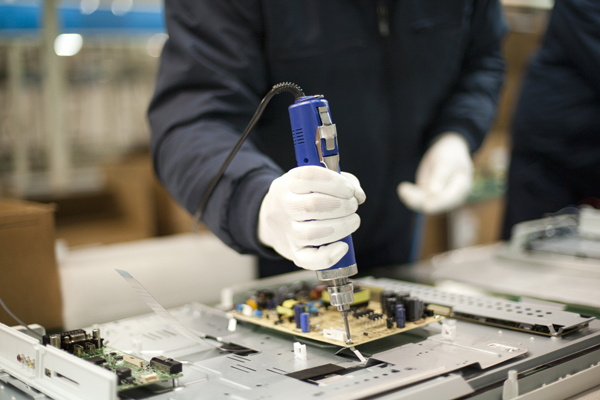- La Feria Community Holds Succesful Business Mixer Event
- Little Nashville to Take Place in Downtown Mercedes
- Lions Basketball Captures District Gold
- La Feria ISD Students Compete in Regional Chess Tournament
- Lions End First Half of 32-4A on a High Note
- La Feria ISD Held Another Successful Parent Conference
- Strong Appearance for Lions at Hidalgo Power Meet
- LFECHS Students Get to Meet Local Actress
- Students Participate in Marine Biology Camp
- Two LFECHS Students Qualify for All-State Band
How International Trade May Be Impacting Your Local Economy
- Updated: February 20, 2015

(StatePoint) Many new jobs in local towns nationwide are coming from a somewhat unexpected place, according to new statistics. Local jobs nationwide are increasingly tied to consumers and businesses abroad, say researchers.
These days, international trade supports more than one in five American jobs — 38.1 million across the country — according to research from Business Roundtable, an association of chief executive officers of major U.S. companies.
Increasing evidence points to the importance of international trade to the American economy and to local businesses and communities, as the share of U.S. jobs tied to trade more than doubled from 1992 to 2011. These jobs span a range of industries from technology and agriculture across 50 states.
And recent free trade agreements have led to rapid U.S. export growth to partner countries, according to Business Roundtable. America’s free trade partners purchased $733 billion in U.S. goods in 2013 — 12.6 times more per capita than non-partner countries purchased.
What it all boils down to, say experts, is that countries that trade with the U.S. buy more American products. And increased trade drives foreign companies to create more jobs in the U.S., by locating research facilities, laboratories and plants throughout the country.
“American innovation and global competitiveness depend on our ability to trade with the rest of the world,” said Peter Cleveland, vice president of Global Public Policy at Intel Corporation. “More than three-quarters of Intel’s revenue comes from sales outside the U.S., while roughly three-quarters of Intel’s advanced microprocessor manufacturing and R&D is done here in the U.S.”
Given these trends, Congress is currently considering new legislation that could help foster new trade agreements and potentially drive future growth, as well.
America’s Chief Trade Negotiator, Ambassador Michael Froman, expressed support for the effort in his testimony on the 2014 Trade Agenda, “Done right, trade policy creates opportunities for American workers, farmers and ranchers; manufacturers and service providers; innovators, creators, investors and businesses — large and small.”
However, not everyone is sold on the pending trade agreements. Some labor groups have expressed concern over the impact of increased international competition on domestic job creation, trade deficit reduction and the government’s ability to prevent currency manipulation.


